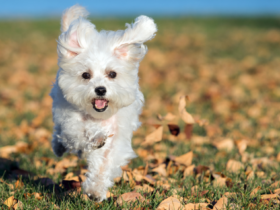Acquiring a new puppy brings lots of joy to dog lovers. Pups are cute and are therefore admirable to have around. As puppies get accustomed to their new environment, they tend to get closer and fonder to their owners. Most importantly, pups adopt ways of communicating their feelings or moods, which often comes through their actions. While most pup owners may not understand the canine language, it is essential to take note of the pup’s behaviours, which may convey vital messages about their mood or even health.
Here are some behaviours you need to look out for in your new puppy and the message they carry:
Nipping
Newly acquired pups have a tendency of nipping or biting at their pet parents, and is often considered normal. Notably, puppies don’t bite to cause injury or harm. At an early age, they tend to communicate with their mouths and teeth.
Nipping may be a sign of anxiety, fear, playfulness, or aggression. Sending a message such as making “ouch” or “ahh” expresses pain and soon, the pup will understand that it is not good to bite and probably stop the behaviour.
Eating Poop
While this is considered a normal dog behaviour, pups may adopt it for various reasons. It might be a way of cleaning their mess to avoid the repercussions or a matter of curiosity. As pups tend to grow, they pick different scents in their poop and may be curious to know what it tastes like.
Eating poop may also be a natural solution to nutritional deficiency. In this case, it is important to feed your new pup with the best dry puppy food from a young age.
Digging
It is paw-sible that your pup is just putting its paws into action, but digging may also come up due to various reasons. Pups may be trying to track animals or making themselves a perfect spot to lie.
Whenever this behaviour persists even inside the house, it is best to train your pup or even get them a comfortable dog sleeping mat.
Chewing
Pups are often guilty of chewing on leashes, shoes, and so many other items in the house. This behaviour is normal for them since they are going through the teething stage. They do this instinctively to keep their teeth strong and tartar free. What’s more, it helps them relieve stress and pain throughout the teething process.
Barking
This behaviour brings out the protective instinct of dogs. Pups, however, will bark when they are around strangers. While this is completely normal, continuous barking may be the start of behavioural issues.
As such, it is important to train your pup by introducing them to friends and neighbours without rushing. This way, they get friendly and minimize their barking even when around new people.
Yawning
This behaviour is a common indicator that your pup may be tired, sleepy or probably in need of some food. However, it could also be a sign of stress, and increased yawning could indicate that your pup is not comfortable, especially when around a new person.
Peeing
Your new puppy will tend to pee even in the house since they don’t understand it is wrong. With the proper training, they soon stop peeing inside. If this behaviour comes up even for trained puppies, it probably indicates that they are afraid of a family member or stranger. Making it feel comfortable around people will help deal with this behaviour.
Conclusion
New pups will try to communicate through behaviours such as nipping, digging, barking, and even chewing. Understanding such behaviours is therefore vital for the pet parents to help their puppies.










